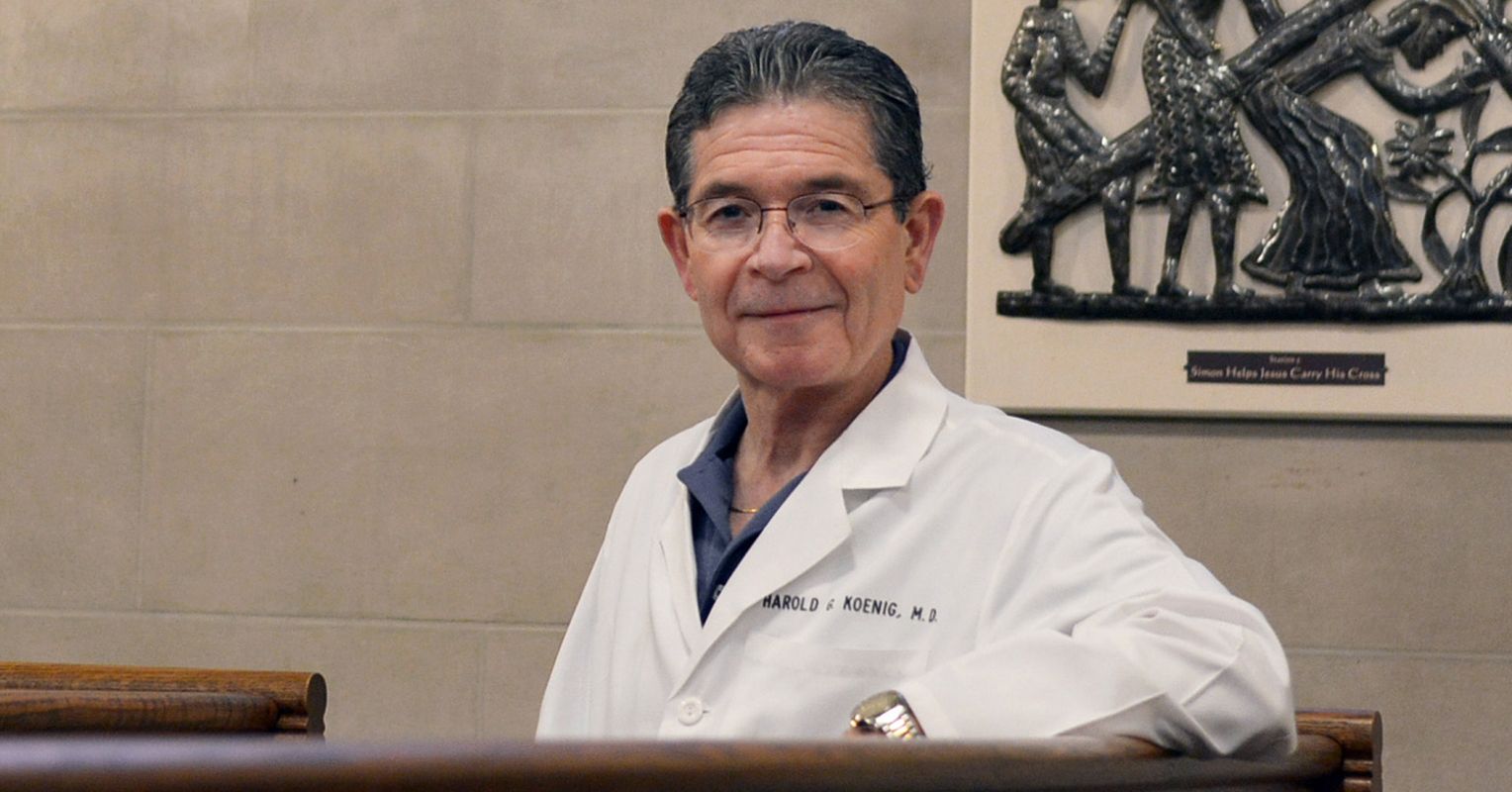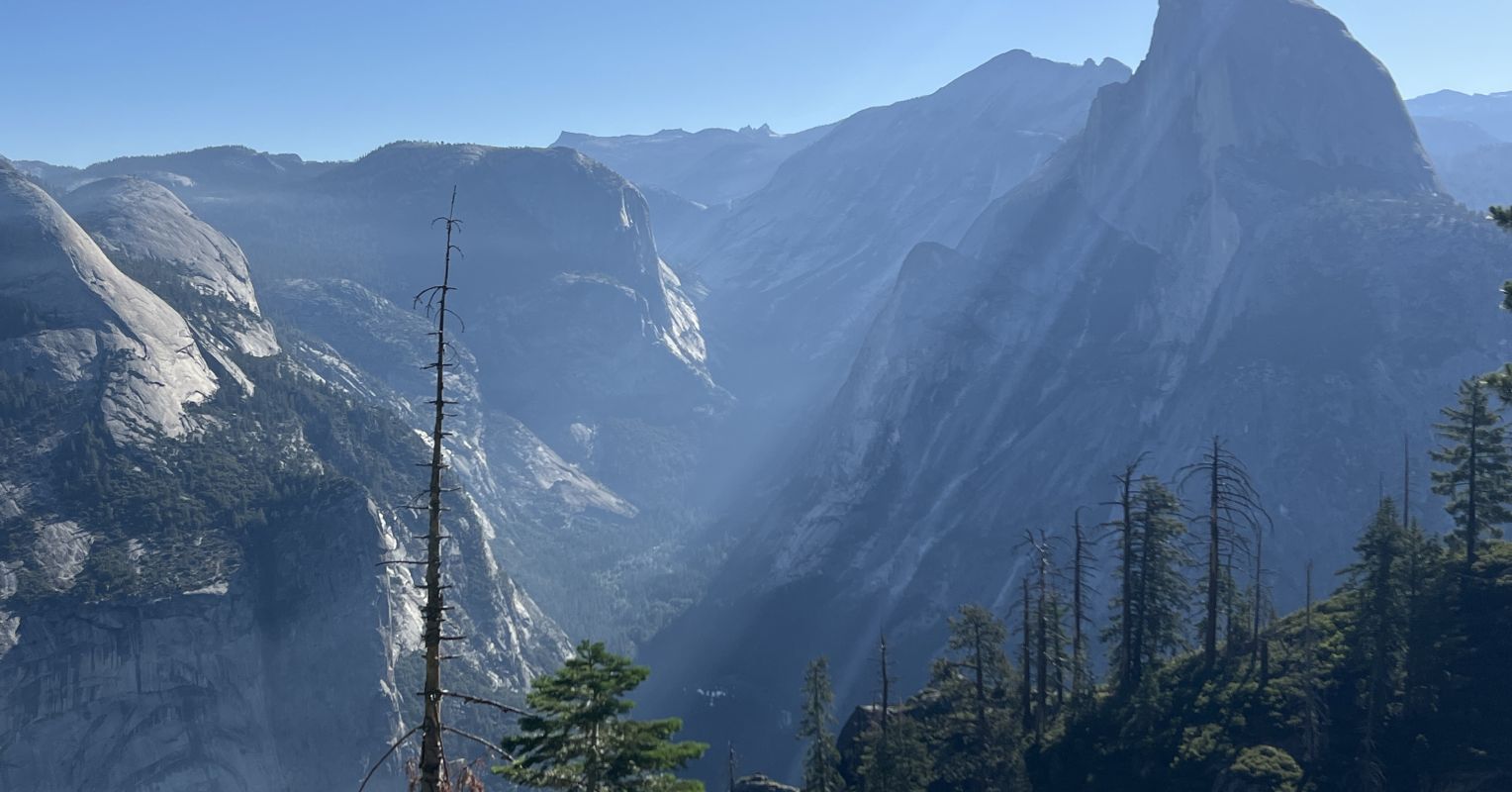#spirituality
#spirituality
[ follow ]
#mental-health #religion #marriage #symbolism #astrology #samantha-mumba #art-exhibition #philosophy #wellness #jazz
fromPsychology Today
1 month agoThe Simple Feeling of Being
The simple feeling of being is the fundamental basis of every momentary perception. What's happening right now is the only starting point there could ever be. The simple feeling of being is without border or boundary. The simple feeling of being is inescapable. It is not something that needs to be created or generated or sustained or practiced. It is what is here already.
Mindfulness
fromThe Mercury News
1 month agoBay Area events calendar for Jan. 16-22 weekly editions
Wanda Sykes - Please & Thank You Tour with Special Guest Keith Robinson: Laugh out loud with Wanda Sykes, an Emmy-winning stand-up comedian, writer, actress and producer in show business for more than 20 years. 8 p.m., Center for the Performing Arts, 255 Almaden Blvd., San Jose. bit.ly/4jwGYii SJZ Break Room Jazz Jam Featuring Thomas Pridgen: Join powerhouse drummer Thomas Pridgen and enjoy some great music while learning techniques in this jam session.
Humor
fromenglish.elpais.com
1 month agoWelcome to the post-religion era: The idea of Christianity as the absolute truth has become obsolete
Tis the season to occupy oneself in eating and drinking like there's no tomorrow, in the wonderful warmth of friends and family, remembering those who are no longer with us and locking eyes as we toast to the river of time and the year to come. Some will go to Mass, many to buy presents, and almost none of us will think for even a moment of that unknown land between this world and the next.
Philosophy
LGBT
fromAdvocate.com
2 months agoUpstate New York Methodist minister comes out as transgender to congregation during Sunday service
Rev. Dr. Phillippa Phaneuf publicly announced she is transgender and invited her congregation into a spiritually grounded season of transformation and continuing ministry.
fromwww.theguardian.com
2 months agoA moment that changed me: My unbearable grief kept growing until I found solace in a silent community
I coped by keeping incredibly busy. I regularly informed friends I'm fine, actually, as I threw myself into a new job in communications, went clubbing every weekend, picked up a side hustle selling secondhand clothes and got suspiciously invested in my gym routine. If I could just keep busy, I thought, perhaps I could drown out the growing tidal wave of grief. And it worked, until it just didn't any more.
Mindfulness
Public health
fromIndependent
2 months agoClare O'Dea: Here in Switzerland, assisted dying has become too easy. Ireland should handle the issue with care
Create a compassionate, planned support system for people with terminal illness instead of relying on a demand-led assisted-dying model like Switzerland's.
fromVulture
2 months agoThe Joyful Sorrows of the Reverend Joyce McDonald
The Reverend Joyce McDonald says a pastor once told her to "ask God what type of artist you are." She says God responded, "You're a testimonial artist." McDonald's testimonies come in the form of mostly unfired clay sculptures, sometimes embellished with glitter, nail polish, fabric, or paper towels. These figures are very small and simple (a mother and child, a woman praying) and almost naïve in affect (they carry titles like
Design
fromwww.theguardian.com
3 months agoI don't believe in God but, as a trauma survivor, I'm learning to forgive myself | Jackie Bailey
Normally, a person goes about their life, making meaning of everything that happens to them, slotting it into a world that makes sense. Psychologist Bessel van der Kolk explains that a traumatic event short circuits this process. Trauma overwhelms a person, rendering them unable, in the moment, to integrate the event into their lives. In the context of spirituality, trauma is a hand grenade, exploding two of spirituality's primary functions: to help a person make meaning and feel at home in the universe.
Mental health
fromThe New Yorker
3 months agoRachel Dratch Gets Metaphysical on Her Woo-Woo Podcast
Dratch, who wore an all-navy outfit with a small bird-pendant necklace, was exploring Stick Stone & Bone, a West Village boutique that hawks woo-woo wares: gems, jewelry, incense. Nose-ringed clientele browsed quietly; jazzy piano twinkled softly from above. The shop had been recommended by Amy Poehler, Dratch's close friend and podcast guest. On the show, Dratch and her co-host, Irene Bremis, a comedian and Dratch's high-school pal, are regaled by familiar faces' woo-woo tales: Tina Fey's spooky Jersey vacation town, Will Forte's Ouija high jinks, Gloria Steinem on the intuition of the oppressed. Dratch said that Poehler is, generally, "the ultimate skeptic" of woo-woo-ness.
Philosophy
fromThe Atlantic
3 months agoWhy Guillermo del Toro made Frankenstein
Horror defines our boundaries and illuminates our souls. In that, it is no different, or less controversial, than humor, and no less intimate than sex. Our rejection or acceptance of a particular type of horror fiction can be as rarefied or kinky as any other phobia or fetish. Horror is made of such base material-so easily rejected or dismissed-that it may be hard to accept my postulate that within the genre lies one of the last refuges of spirituality in our materialistic world.
Books
fromThe Mercury News
3 months agoWill this 75-year-old East Bay man save our world, a new documentary asks
Several Indigenous tribes in South America had ancient prophecies that one day, when the world was ablaze, its waters filled with poison, a man with a White face and blue eyes would arrive to help unite the tribes and help them save the planet. A few years ago, the tribal elders announced that man was Patrick McCollum, a Northern California man.
Film
Film
fromwww.theguardian.com
4 months agoBallad of a Small Player review Colin Farrell seeks redemption in Edward Berger's high-stakes gambling yarn
A gambling addict in Macau faces a metaphysical choice between redemption and self-annihilation after a calamitous encounter with a mysterious moneylender.
Mindfulness
fromMetro Silicon Valley | Silicon Valley's Leading Weekly
4 months agoRob Brezsny's Free Will Astrology for October 16-22, 2025
Ancestors and subtle powers invite spiritual communion; decay of old patterns fosters renewal; deeper, wilder love requires releasing defenses to embrace new intimacy.
fromTiny Buddha
4 months agoThe God I Lost, the One I Found, and the Faith That Changed Me - Tiny Buddha
There's a particular kind of heartbreak that happens when you realize some of your prayers are going nowhere. There's a painful silence that follows unanswered calls. Yet, despite the ache, I can still feel the pull to pray to the God outside of myself-that old reflex to place faith in something bigger, some invisible force in the sky, who, apparently, can make things happen magically here on Earth. But it doesn't always go that way, does it?
Mindfulness
fromPsychology Today
4 months agoSpiritual Strength Requires Wisdom
The main argument here is that spiritual strength is fundamentally about cultivating wisdom. From a psychological perspective, spirituality isn't about dogma or belief; it is about developing the kind of wisdom necessary to face suffering without denial, accept uncertainty without despair, and discover meaning beyond the ego. Modern cognitive scientists, such as John Vervaeke, describe wisdom in two dimensions: moral (what serves the greater good, the long view) and cognitive (navigating complexity, managing strong emotions, and distinguishing the essential from the trivial).
Mental health
fromBustle
4 months agoThe Spiritual Meaning Of This Year's Autumnal Equinox
Big energetic shifts are in the air, as September not only coincides with the powerful magic of eclipse season, but it also heralds in the autumnal equinox, which is the first official day of fall here in the Northern hemisphere. In 2025, this celestial event takes place on Sept. 22, and it serves as the exact midpoint between the summer and winter solstices.
Mindfulness
fromArs Technica
5 months agoMillions turn to AI chatbots for spiritual guidance and confession
"I wonder if there isn't a larger danger in pouring your heart out to a chatbot," Catholic priest Fr. Mike Schmitz told The Times. "Is it at some point going to become accessible to other people?"
Privacy technologies
Fashion & style
fromwww.kaltblut-magazine.com
5 months agoDZHUS Unveils ANTICON Collection: A Phantasmagoric Exploration of Utopia and Identity
DZHUS's ANTICON collection uses desaturated, coded garments and modular design to explore belonging, spiritual lexicons, stoic self-sufficiency, and escape from existential despair.
fromwww.7x7.com
6 months agoChinatown's Hungry Ghost Festival, the only one of its kind in the U.S., returns to San Francisco.
The only citywide festival of its kind in the nation is a celebration for the Chinese diaspora, signifying a time when the boundary between human and spiritual realms is thinner.
SF music
fromPsychology Today
6 months agoHow Bill Huard Found His Greater Purpose
A sense of purpose can be understood as an organizing drive towards fulfilling a goal in one's life. Oftentimes, our purpose can involve professional, spiritual, or interpersonal goals that help us feel like the best and most authentic version of ourselves.
Mental health
fromPsychology Today
6 months agoWhy We Become More Aware of Mortality in Midlife
As we age and experience the death of parents and peers, we become increasingly aware of our mortality. Such awareness may trigger anxiety and prompt preparations, such as writing wills and advance directives.
Mental health
fromdesignboom | architecture & design magazine
6 months agobehind nima nabavi's vast geometric vortex painting: converging energy, labor, and structure
Nima Nabavi’s exhibition, Roswell2223, showcases an 18-foot-long hand-drawn canvas that embodies spiritual intensity and meditative clarity through intricate geometrical forms.
Artificial intelligence
fromYanko Design - Modern Industrial Design News
7 months agoTable lamp brings traditional craftsmanship and spiritual design together - Yanko Design
The TRIRIS lamp by Chinmayi Bahl transforms spaces into sanctuaries of ambient light, merging traditional craftsmanship with modern design sensibilities.
Design
fromColossal
7 months agoSpirituality, Nature, and Performance Converge in Victoria Ruiz's Vibrant Photographs
For me, costume has always been part of everything. Culturally, I grew up in Venezuela seeing costume not as something separate from daily life but as something deeply embedded in it, especially through the lens of carnival.
Arts
fromFortune
7 months agoAfter almost 250 years as a symbol, the Bald Eagle is finally the official bird of the United States
The legislation that made the eagle official came from members of Minnesota's Congressional delegation. The federal act recognizes the eagles' centrality in most Indigenous peoples' spiritual lives and sacred belief systems.
Miscellaneous
[ Load more ]

.jpeg)






